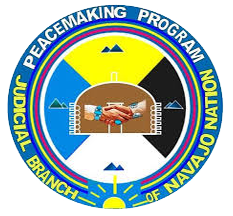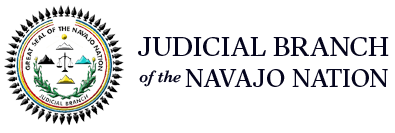Glossary

PLAN OF OPERATIONS - GLOSSARY
Peacemaking | Hózh̨óji Naat’aah |
Peacemaking Participants | 1. Peacemaker, hózh̨ǫ́ójí naat’áanii. 2. The troubled decision-makers who, because they have agreed to participate and will ultimately point the way are naałchidí. Children may be jointly naałchidí with their family members when the family’s joint decision is needed to change behavior. 3. Family members, workmates, friends or others affected who may contribute to the talking-out but do not make the ultimate decision are atah naaldeehí. 4. Observers, who attend with the permission of the group, but may not speak or gesture, are ha’a sí dí. |
Diné Family Group Conferencing | Áłchíní báNdazhnit’á. This is distinguished from family group conferencing practiced in the Division of Social Services. As provided through the Peacemaking Program, áłchíní báNdazhnit’á is an extension of peacemaking and contains traditional elements in response to the Council’s call in the Álchíní Bi Beehaz’ áannii Act of 2011 for the Navajo Nation “to seek out culturally appropriate methods for prevention, intervention and treatment of family disharmony.” The Program understands these requirements to mean that traditional principles and skills in achieving hózh̨ó are to be explained and provided in such situations. |
Life Value Engagements | Nábináhaazláago áłch’į’ yáti’. In such engagements, individuals or groups meet with a Peacemaker or traditional teacher in order to learn how to address a problem through opening up to hózh̨ó. |
Chaos; Disharmony | Anáhóót’i’, hóóchx̨o’, iiná yisdił, iiná deeskid (collectively “hóóchx̨o’/ anáhóót’i’”) mean the opposite of harmony, when things are not what they should be. They are also problems or chaos that disrupt inner and outer harmonious life. |
Gestures of Engagement | Nályééh, k’é ná’ásdlįį, k’é níjísdlįį, k’eedí’nééh are gestures made when people engage each other. They are the process of turning a negative to a positive. It is the tangible achievement of the positive result of hózh̨ó. |
Nályééh | Nályééh means reparations but never damages when used traditionally. It is sometimes said that hózh̨ó is restored through nályééh. |
Yeel | Fee-for-service. As with ookah which is due to a medicine man for ceremonies, yeel is due to a peacemaker for services given. Services should not be received free. |
